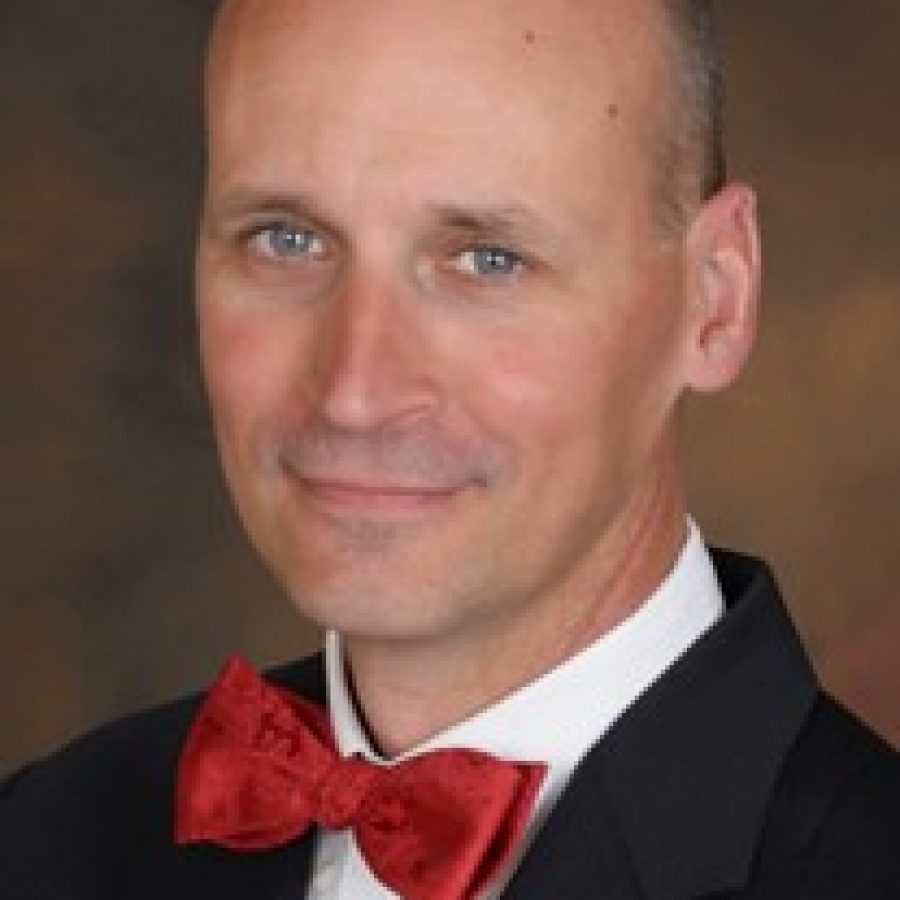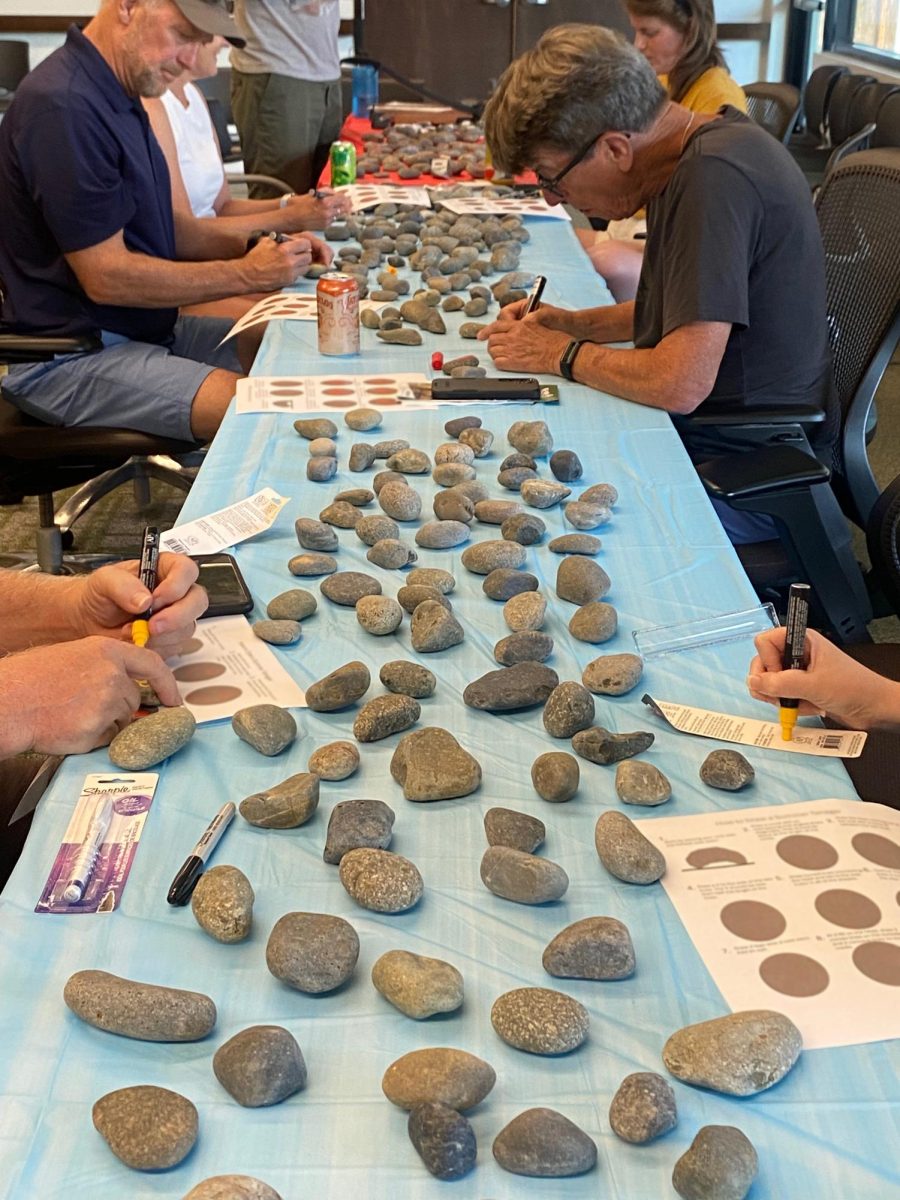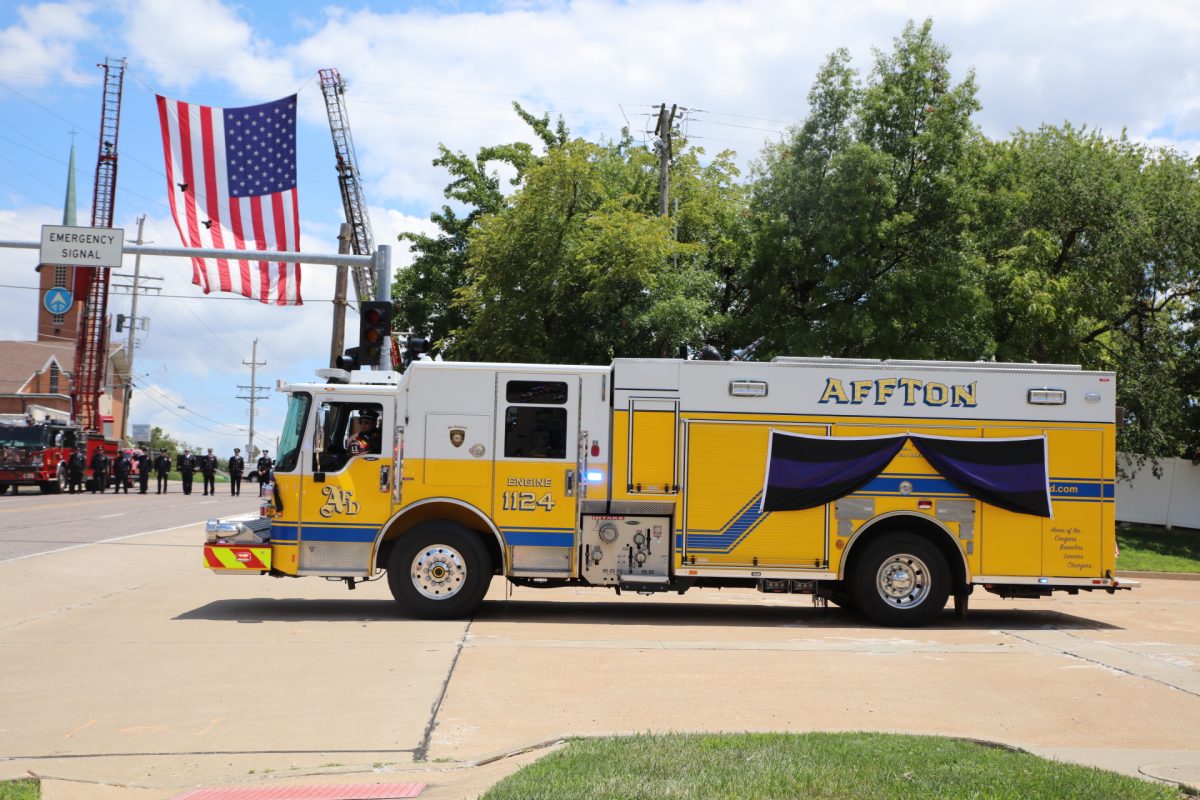Organizers of the elementary school of innovation proposed in the Mehlville School District believe the school’s opening would revolutionize education districtwide by pioneering new ways of learning and increasing test scores and student engagement.
The Board of Education will weigh approval of the lottery-based Choice School of Innovation, or CSOI, when it meets Wednesday, Jan. 18. The CSOI could open in August at the former St. John’s Elementary at Lemay Ferry Road and Will Avenue, across from Mehlville High School.
In advance of the vote, the would-be school’s principal, current Forder Elementary Principal Scott Clark, has been educating parents and residents about what a school of innovation means for the district — and what it doesn’t mean.
“This isn’t something that is a fad, this isn’t something that is a buzzword. This is best teaching practices,” Clark told parents at a board listening session earlier this month. “I think a lot of times we think about innovation being technology, and that’s not the case. We’re talking about best teaching practices to bring student engagement up, to bring in student voice and ownership of their learning. And to do that, we need to think about the practices that we have done in the past and continue to do in many ways and how we can move past those and present new opportunities for students — and yes, my hope, everyone’s hope, is that this would spread across the district.”
The school would be the only school of its kind in St. Louis County, and one of a handful nationwide. Superintendent Chris Gaines first proposed it a year ago, in the wake of the district’s historic Proposition R victory.
Students move at own pace
CSOI students would move at their own pace, challenged by project-based lessons designed to develop the critical thinking, creativity and innovation skills that they increasingly need in today’s changing world.
What that looks like differs from classroom to classroom, but “the one thing you don’t see is desks in rows,” said Rogers Elementary kindergarten teacher Lisa Meyers, who pioneers the techniques in her classroom and has been tapped as one of the school’s nine teachers.
To explain what personalized learning looks like, Meyers mentioned a lesson which requires kindergarteners to edit their own writing.
In a typical classroom, the students may have sat at their desks and put pencils to paper until the time was up. But Meyers taught it differently than any other teacher in the district. Her students — including board President Samantha Stormer’s daughter — partnered to edit each other’s work if they already knew how to read.
But some of the struggling kindergarteners “can barely put letters on paper,” Meyers said, so she worked with them one on one to draw what they wanted to write, then write the words of their art.
“Slowly but surely, they got an entire sentence written, which they felt great about, because they couldn’t do it when I was teaching the whole group, expecting everybody to do the same thing,” she said. “My approach was meaningful for those kids.
“So when you have students that are here and here,” Meyers added, raising one hand above her head and lowering one to waist level, “at the choice school, we’re going to be able to reach each of them where they are.”
Some residents believe the new school could make Mehlville a destination district. Other residents have pushed back on the school, with some believing it’s too wild a concept for Mehlville.
Gaines attributes that resistance to fear of the unknown, even by critics who have long called for the district to improve.
“Everybody wants school to be better, but nobody wants school to change,” he told the Call. “We don’t change for two reasons: tradition and physics. And that is when you’re at rest, you stay at rest. So we’ve been stagnant, and that’s what people know, rather than moving in another direction. Some people like the status quo, but those people that like the status quo also say, ‘We need to be like Lindbergh.’ Well, we can’t stay the way we are and get better.”
CSOI to spark innovation
In response to questions on why every Mehlville school doesn’t immediately switch to personalized learning, Clark and Meyers say teaching and learning in the new style requires a “mind shift” that can be tricky to navigate unless teachers have already bought in to the concept.
Converting to a project-based teaching style also requires extensive professional-development training, which the district is rolling out.
Gaines likened the process to a “stairstep,” with CSOI as the catalyst and pioneer of best practices.
“St. John is meant to take the dozen or so people who are ready to do that now, put them all in the same place, and get them running to be on that leading edge of where everybody else is going to go,” he recently told the Finance Committee.
As district teachers see how learning unfolds at CSOI, they will take it to their own classrooms, Clark said. Similarly, parents on the innovation team say they started out as skeptics but became believers after seeing the concept in action at two schools the team visited in the Liberty School District near Kansas City, EPiC Elementary and Lewis and Clark Elementary.
“Once you see it, you want it for your kids,” said Mike Sita, an innovation team member and Oakville Elementary parent. “I’m very passionate about this because I’ve seen it happen. You see those kids at EPiC and Lewis and Clark, and it’s so inspiring. It made me sad, like we’re failing our kids (in traditional school), and that’s why I’m so passionate about it.”
EPiC opened three years ago and was so popular that the district converted Lewis and Clark, an existing school, to the same type of school. So far, test scores at EPiC are 15 percent to 20 percent higher than other Liberty schools, Clark noted.
Although many people think of technology when they think of innovation, the 2:1 and 1:1 laptops that will be used are the “how” and not the why behind the new school, Gaines said.
“The technology is not the driver, the technology is the tool that lets this methodology be more able to work now than ever before,” Gaines told the Call. “We’ve been talking about the notion of personalized learning for 20, 30 years, that man, wouldn’t it make sense to let kids move at their own pace along the curricular pathway? But that is incredibly difficult for a teacher to do, to manage all of those pathways. Well, now there are technology tools that can help make that happen better than ever before.”























